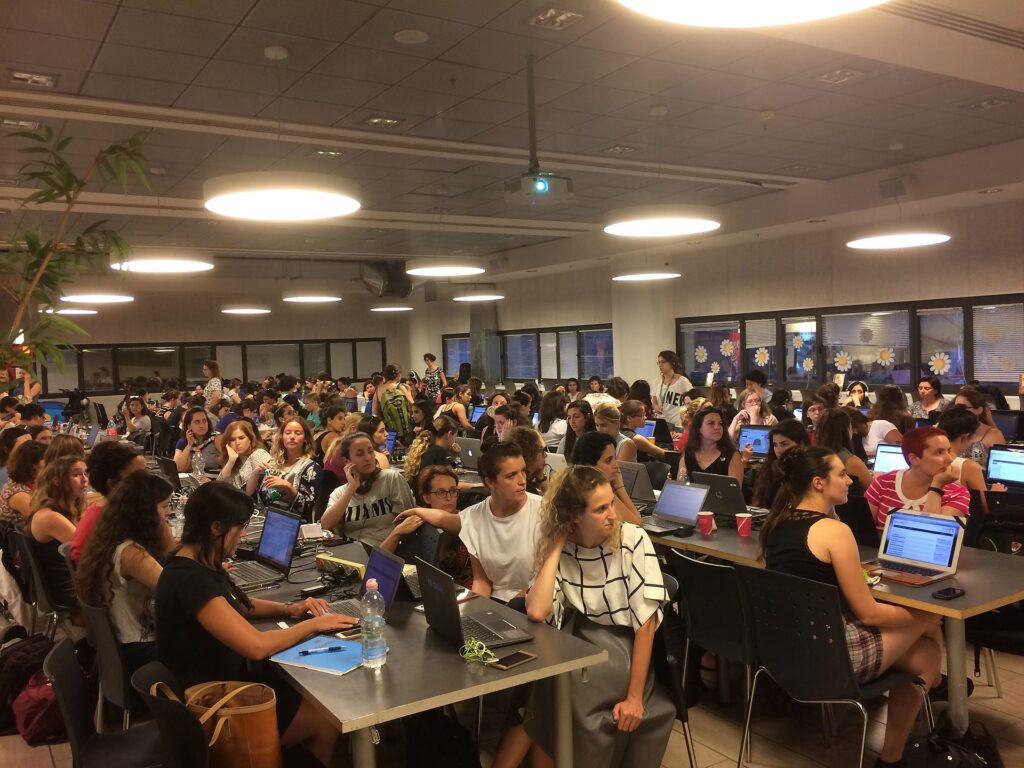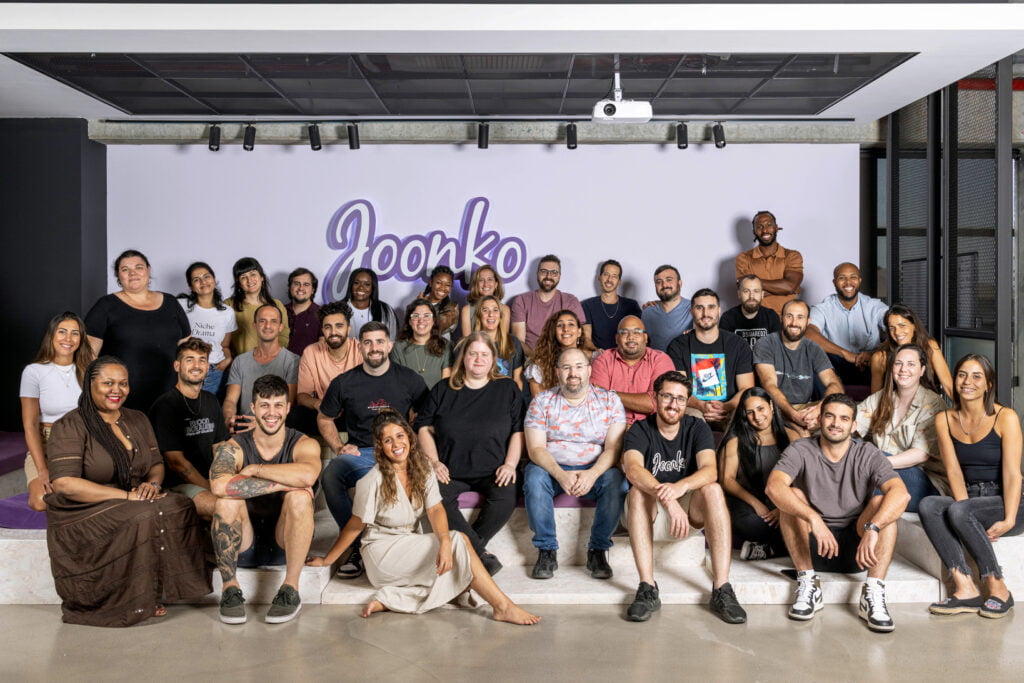The gender gap in Israel’s startups is slowly narrowing, with women now accounting for 35 percent of all jobs.
A report published by Start-Up Nation Policy Institute to mark International Women’s Day shows the number of women in startups is increasing, albeit slowly, up from 33.4 percent in 2021.
Still, women account for just 16 percent of senior (C-level or C-suite) positions, and just seven percent of CTO (chief technical officers) positions. They fare best in senior roles as CMOs – chief marketing officers – at 35 percent.

The findings are based on a database of all LinkedIn employees in Israel’s hi-tech sector.
Women are more successful in hi-tech’s impact sectors – those with a social or environmental impact, which also happen to be some of the fastest-growing industries in Israel.
The alternative protein sector, for example, raised over $1 billion of investment in the last two years, second only to the USA.
“More women choose to be integrated into impact sectors – like alternative proteins, which have a higher percentage of female CEOs,” says Yam Atir, VP Strategy and Policy for Start-Up Nation Policy Institute, the think-tank that strengthens Israeli innovation through policy recommendations.

“Based on our data, we know that these sectors will continue to grow. And because we know these sectors will continue to grow, we expect – and hope – that more women will have a role in these industries in the future.”
To celebrate International Women’s Day, NoCamels highlights some of these impactful Israeli startups that are led by women, for women – from providing them with a sense of security when walking home, to helping them succeed in traditionally male-dominated programming jobs.
A community that helps women feel safer when walking home
Walking home at night can be a stressful experience for women who are whistled at, catcalled, or even followed.
An Israeli startup has developed a free app to help them feel safe wherever they go.
SafeUP tracks their location, and lets them call other members of the community if they feel unsafe.

The ‘guardians’ undergo crisis intervention training through the app to support women who feel threatened.
If they are in the area, they can meet the user and accompany the woman to her home. If they fear the woman is in danger, they can call the police through the app, which taps into the phone’s camera and microphone to record evidence.
Neta Schreiber Gamliel, the company’s CEO, was inspired to create the app after an incident she experienced as a teen at a party.

She realized a friend had disappeared, went looking for her with some friends. They found two men trying to take advantage of her while she was in a semi-conscious state.
She says that when they entered the room, the men ran away, and from that moment she realized that women had more power in numbers.
SafeUp says its members feel 82 percent more safe walking alone at night when using the app, and enjoy an extra five hours outside a week.
Sign up for our free weekly newsletter
SubscribeA space for women to learn programming skills
Women are highly under-represented in the tech workforce. In Israel, they account for 34 percent of the industry, and in the US, they only make up 28 percent of computing and mathematical jobs.
An Israeli organization is tackling this gender imbalance by offering women-only coding and programming courses across the country.
She codes (stylized as she codes;) has already taught 50,000 women programming skills since 2013. Once a week, participants meet at over 45 branches to learn and attend lectures on technology and career advising.

The meetups also function as a space for women to study and learn together, whether they have a background in programming or are learning to code for the first time.
The organization offers five basic and eight advanced study courses. She codes; was founded by Ruth Polachek, who set a goal to achieve 50 percent female developers in the Israeli tech scene within a decade.
“The Israeli high-tech market has a shortage of about 30,000 programmers,” said Polachek. “Women have tremendous potential to fill this place.
“Now, when the number of recruitments is decreasing, it is the right time to professionalize, to gain a lot of experience and knowledge at a high level, so that talents are in demand for desirable jobs.”
Algorithm increases gender-equality in companies
Research shows again and again that ethnically- and gender-diverse companies are more likely to outperform their peers, and companies with women on the board statistically outperform their peers over a long period of time.
Israeli startup Joonko is working to increase diversity among global enterprises. Since 2021, it has helped 250 applicants find jobs every month in the US.

Its algorithm scans the databases of job applicants at American Express, Nike, Walmart, Booking.com, Adidas, Paypal and many other global enterprises that receive thousands of applications a month.
When it identifies a short-listed candidate from an under-represented group (women, people of color, or veterans) who didn’t make the cut, it reaches out to them and asks if they want to join the platform.
If they agree, it analyzes its subscribed pool of companies for suitable vacancies, and automatically emails them custom job recommendations twice a week.
Joonko’s talent pool is only open to professional individuals from the under-represented groups referred to the platform by one of its partnering companies.
“We analyze every candidate who doesn’t get an offer, and try to understand their gender, race, and veteran status using algorithms that we developed in-house,” said CEO Ilit Raz.

“And once we do, we are able to funnel them and determine if they are relevant for the pool or not.”
The company, based in Tel Aviv, is named after Junko Tabei, from Japan, who was the first woman to reach the summit of Mount Everest, in 1975. Raz says her perseverance shows them that no challenge is too big to overcome.
Related posts

Rehabilitation Nation: Israeli Innovation On Road To Healing

Israeli High-Tech Sector 'Still Good' Despite Year Of War





Facebook comments